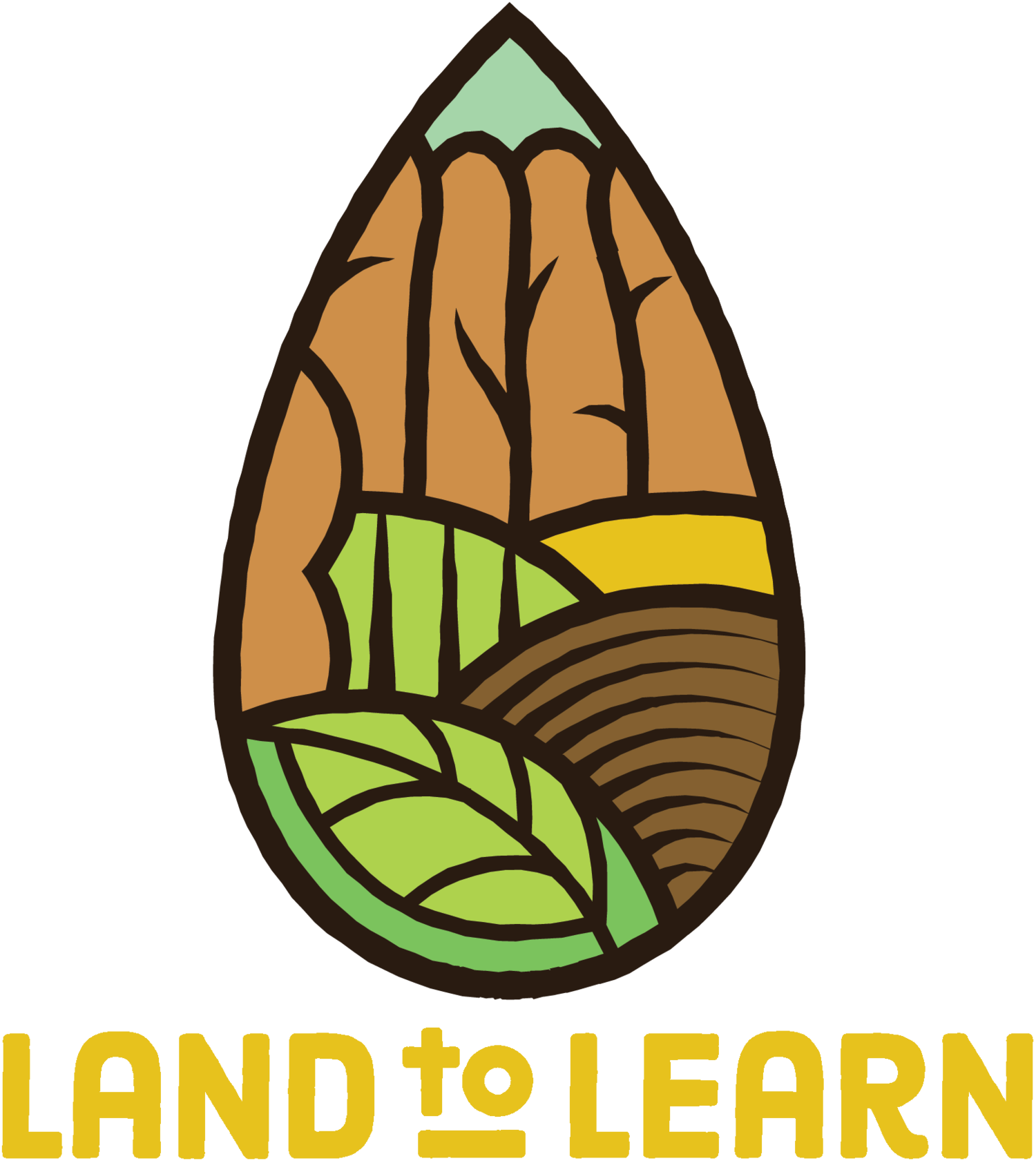Land to Learn is doing essential work despite the hurdles of 2020. Here’s some of what we have done so far in this year to support our students & community:
Modified core programming:
From January to March we taught weekly or bi-weekly lessons as usual to 2,000 students in gardens and classrooms, and were with the kids eager to plant their spring veggies. When the pandemic arrived we remodeled SproutEd (our K-2school garden education program) into an online and in-person hybrid learning platform, offering our lessons online all spring. This fall we’re teaching in person where we can, and online to students who are learning virtually.
Land to Learn’s education team created a YouTube channel and have been stocking it full of fun, educational, and activity-rich video lessons (planting, recipes, bugs!). Based on our classroom lessons, the videos are available to all students who want to expand their garden learning beyond the classroom.
In response to parents concerned about their kids stuck at home we offered a summer “edutainment” program for the first time, with students attending garden time virtually.
We created and distributed more than 200 kits with supplies and instructions so that our students and their families could garden at home.
Emergency support:
Land to Learn staff planted 9 of our school gardens with nutritious crops to help feed the community. We have been key participants in emergency food systems planning and distribution in Beacon, Newburgh, and Kingston, partnering with many excellent local organizations to make sure hundreds of families in each city get fed each week.
In collaboration with the Beacon Farmers’ Market, we distributed to SNAP-eligible market customers a “bonus bag” of produce grown in our gardens. They included recipe cards suggesting ways to prepare the included food.
Program Enrichment:
Our team trained the Washingtonville school district to teach their own Land to Learn classes, with our curriculum, in their new school garden.Any school or teaching pod can now purchase similar training and curriculum through our Toolshed program.
Partnering with Glynwood, we distributed wooden garden boxes, filled with good soil, to families and partners interested in larger gardening endeavors.
We completed another successful autumn of afterschool garden programming at the Boys & Girls Club of Newburgh.
From the fall of 2018 until the pandemic, Land to Learn’s Executive Director, Hans Hageman, built a garden and led weekly programming to teens at the Goshen Secure Center, which houses incarcerated youth.
Land to Learn and another regional nonprofit, The Felix Organization, partnered so that local foster youth in residential care could build and continue to grow in a learning garden at the Young Women’s Leadership Academy at St. Christopher’s. LtL’s staff taught garden lessons there over the summer.
We continued our teen apprenticeship program, hosting six local teens in person over the summer. Our apprentices learned professional and gardening skills while helping to implement our summer gardening programs. These apprenticeships were made possible in partnership with eight programs!
Organizational Enrichment:
Through our work with the Beacon Farmer’s Market, the Mediation Center of Dutchess County, the Hudson Valley Food Systems Coalition, and other local collaborators we have been supporting and learning in the anti-racist leadership and justice movements.
In response to colleges in crisis-management, we also had the great opportunity to host 10 distanced Princeton University interns over the summer, and into the fall. Our telecommuting interns learned the inner workings of a nonprofit, and assisted us in all aspects of our behind-the-scenes work, from digital systems to marketing.
In partnership with Mediation Center of Dutchess County, and in commitment to undo the colonial systems of oppression, two of our staff have been trained in circle practice.
We’re going to keep showing up to ensure Hudson Valley children continue to learn about the wonders of the garden through lessons that are as experiential as possible, and pivoting and advocating for their needs when the systems of the world try to get in the way of their education. Thank you for your help!
